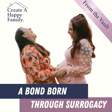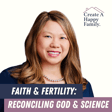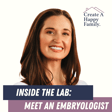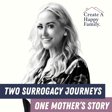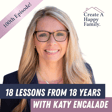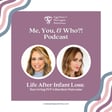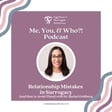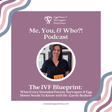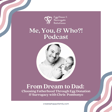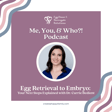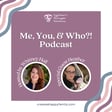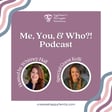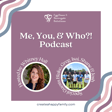
Who? A Reproductive Endocrinologist, Author & Founder of GayParentsToBe, Dr. Mark Leondires
On today’s episode, I had the privilege and honor to speak with Dr. Mark Leondires, the founder, medical director, and partner in reproductive endocrinology at Illume Fertility, with locations in Connecticut and New York. Dr. Leondires is an esteemed member of RESOLVE's Physician Council and ASRM's Diversity, Equity & Inclusion Task Force. In 2012, he founded GayParentsToBe.com, a resource advocating for the LGBTQIA+ family-building community, inspired by his own experience as a gay dad through egg donation and surrogacy.
Dr. Leondires lives in Connecticut with his husband Greg, whom he married in 2010, and their two sons. His personal journey led him to create valuable resources and support for others. He co-authored the book "Building Your Family: The Complete Guide to Donor Conception" with Lisa Schuman, LCSW, highlighting his passion for all aspects of family building, beyond just the medical side.
In our conversation, Dr. Leondires' dedication to representation, kindness, and humanity shines through. We discussed his extensive work and advocacy, making this episode a must-listen whether you are building your family through a third party or supporting someone who is. At Egg Donor & Surrogate Solutions, we stand by these values and are grateful to partner with voices like Dr. Mark Leondires. Please enjoy!
Takeaways
- LGBTQ+ family building has seen significant improvements, with more reproductive endocrinologists and surrogacy providers offering inclusive services.
- Ways that Fertility clinics can prioritize LGBTQ+ competency and create an inclusive environment for patients.
- The process of donor conception can be overwhelming, but breaking it down into manageable steps and seeking mental health support throughout the process can help navigate the journey.
- Open and honest communication with children about their donor conception is essential for their future well-being. One way to navigate the emotional aspects of donor conception is by practicing age-appropriate storytelling and being open to discussing the donor with your child.
- Seek reliable resources such as RESOLVE and reputable surrogacy and egg donor websites like Egg Donor & Surrogate Solutions for information and support is vital when trying to educate yourself.
- Find a healthcare provider who offers personalized care and makes you feel valued and supported throughout the fertility journey.
- Recognize the importance of kindness and gratitude in the fertility community.
Links:
RESOLVE: The National Infertility Association
Building Your Family: The Complete Guide to Donor Conception


